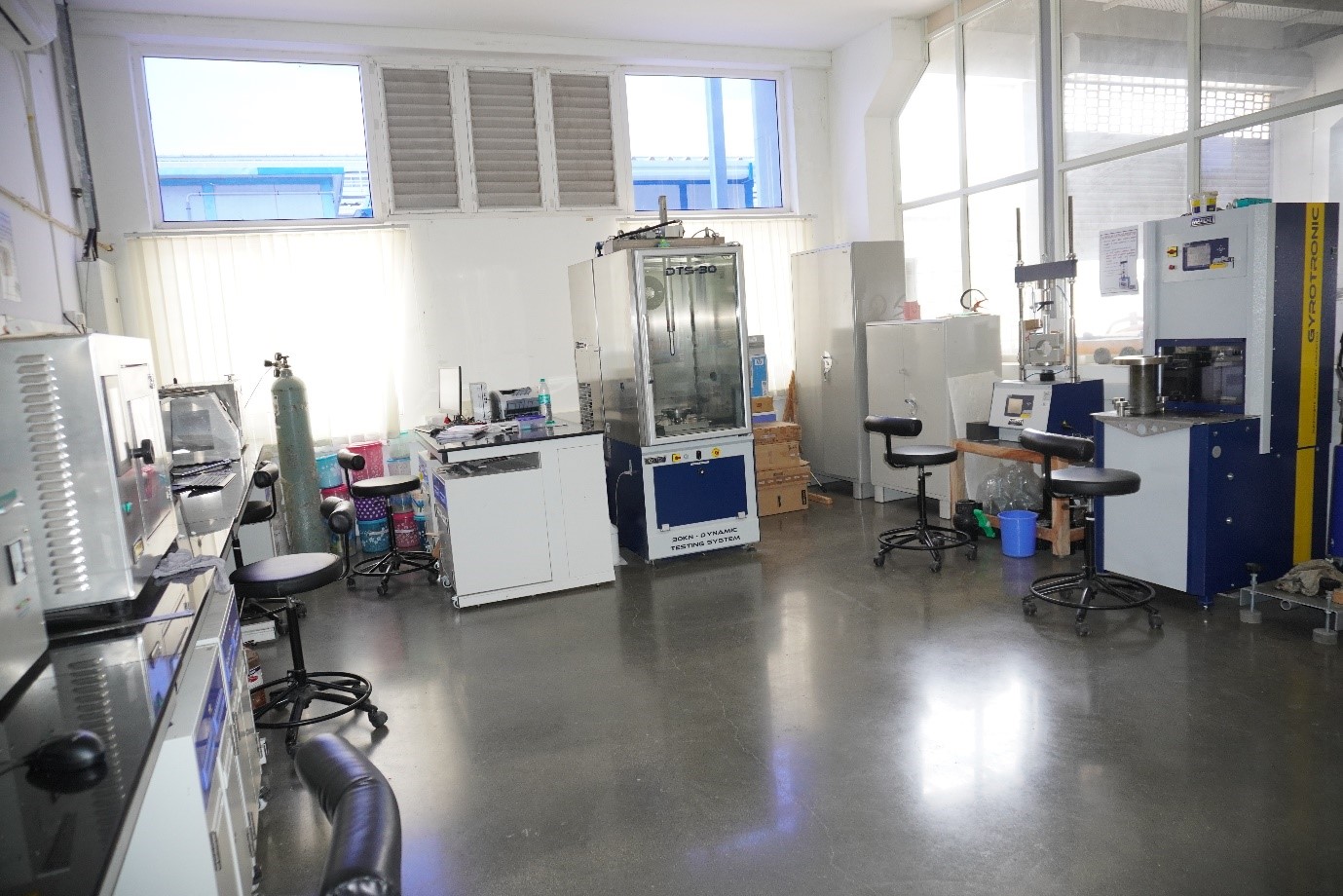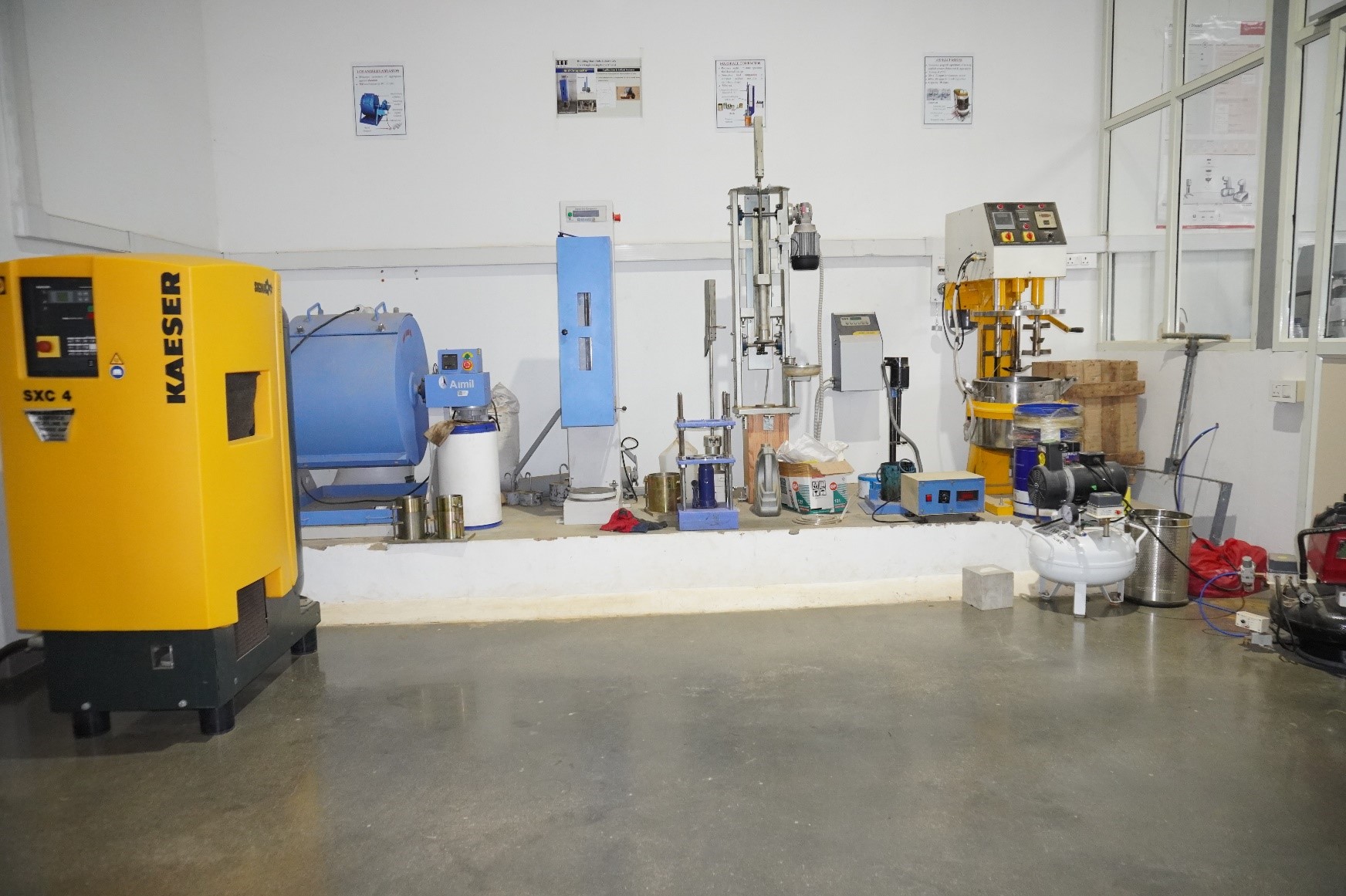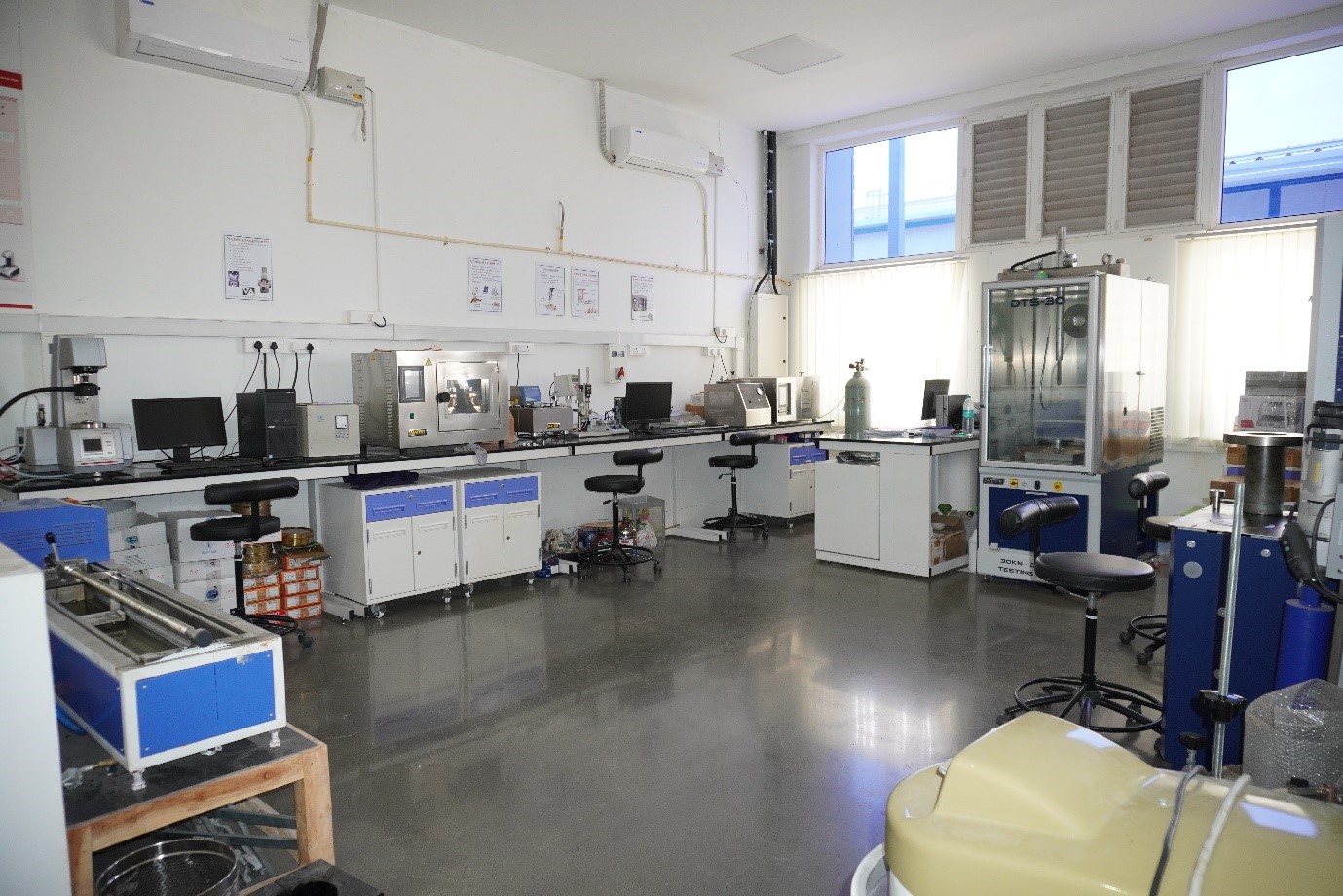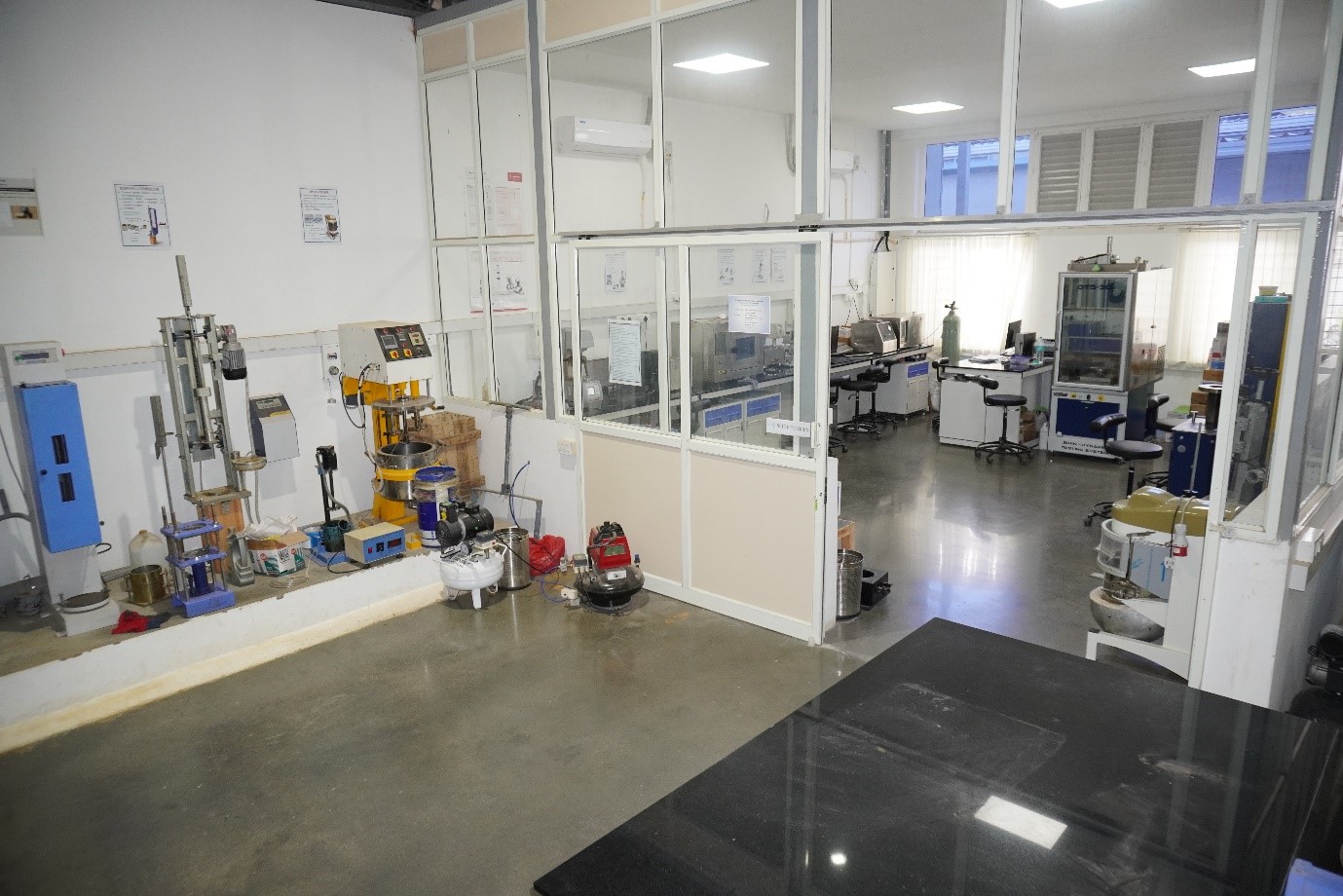Advanced Pavement Systems Laboratory
Currently, the Advanced Pavement Systems (APS) laboratory at IITT is housed inside of a state-of-the-art sustainable building in permanent campus under the larger aegis of the Materials for sustainability, Asset management, & Performance monitoring of Smart infrastructure (MAPSmart) Research Cluster. The equipment housed in this laboratory allows for undergraduate teaching as well as postgraduate and doctoral research activities in the areas of sustainable transportation infrastructure as well as pavements / materials. The APS laboratory is adjacent to the geotechnical laboratory, structural mechanics laboratory, concrete materials laboratory, environmental engineering laboratory, and water resources laboratory, which together provide for comprehensive study of sustainable infrastructure engineering. Note that the APS laboratory at IITT is being created as one of the best and most advanced research and teaching facilities in India, and currently occupies about 1000 square feet of space. Further, additional laboratory facilities covering an area of over 40000 square feet are also being created on-campus IITT through the Ministry of Road Transport & Highways sponsored research grants. The APS laboratory is capable of full characterization of unbound materials, asphalt binder as well as asphalt concrete and cement concrete mixtures. Transportation pavement / materials engineering research program at IITT addresses advanced pavement materials testing, performance analysis, design and management, development of novel and smart materials as well as establishment of sustainable construction practices. The current program consists of undergraduate and postgraduate research, including doctoral studies.
It is envisioned that the APS laboratory will provide a venue where pavement engineers, scientists, researchers, technical experts, and students of partnering institutions can share information on topics that further advance sustainability of pavement networks in a comprehensive manner. This platform would encompass the global effort of understanding pavement sustainability, including general theories and models, which aid in understanding the decision-making processes and policies. Furthermore, the APS laboratory will promote fundamental research in transportation pavement infrastructure engineering to advanced design and analyses of alternative roadway construction materials and technologies that focus on “quality of life” issues to create greener sustainable cities on a global scale. The research activities of the APS laboratory are geared to help transfer of technology in various research topics, but not limited to: (a) innovations in new/modified pavement materials and innovative technologies, (b) accelerated pavement testing, (c) climate impacts and environmental issues, (d) energy conservation and CO2 emissions, (e) tire / pavement noise, (f) Urban Heat Island, and (g) tire wear emissions.
It is envisioned that the APS laboratory will provide a venue where pavement engineers, scientists, researchers, technical experts, and students of partnering institutions can share information on topics that further advance sustainability of pavement networks in a comprehensive manner. This platform would encompass the global effort of understanding pavement sustainability, including general theories and models, which aid in understanding the decision-making processes and policies. Furthermore, the APS laboratory will promote fundamental research in transportation pavement infrastructure engineering to advanced design and analyses of alternative roadway construction materials and technologies that focus on “quality of life” issues to create greener sustainable cities on a global scale. The research activities of the APS laboratory are geared to help transfer of technology in various research topics, but not limited to: (a) innovations in new/modified pavement materials and innovative technologies, (b) accelerated pavement testing, (c) climate impacts and environmental issues, (d) energy conservation and CO2 emissions, (e) tire / pavement noise, (f) Urban Heat Island, and (g) tire wear emissions.




